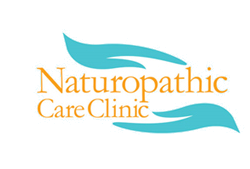The origin of the use of herbs dates back to prehistoric times and their traditional medicinal use continues in all cultural groups throughout the world. Human beings have evolved alongside plants utilizing them as both food and medicine. Medicinal plants work in part on an energetic level since each plant has a distinctive vitality. Traditional healers use herbal remedies to help the body overcome illness and to strengthen the body’s own vitality. Herbs work with the body’s own physiological processes to strengthen and restore natural balance. Many herbal remedies can also be taken to prevent illness and are extremely helpful in the promotion of mental and physical activity . Herbal remedies are prepared and used in many different ways. Many preparations such as teas and tinctures have been used in making medicines for thousands of years.
These are some of the most common types of herbal preparations:
- Teas/ Infusions: Teas, or infusions are the most simple way of making a herbal remedy Teas are made with fresh or dried leaves and flowers. It is best to use a glass or ceramic (not metal) teapot or cup with a lid to infuse the herb. The herbs are added to an already boiled water and the combining mixture is brewed for about 10 to 20 minutes and is then strained.
- Decoctions: are made by simmering chopped herbs in water for about 20 minutes. The resulting liquid is then strained. Decoctions are usually made with the tougher parts of the plant such as berries, bark, and roots.
- Tinctures: Tinctures are made by extraction of chopped herb material in an alcohol and water solution. By using an alcohol and water mix both water- soluble and non-water-soluble constituents can be extracted, leading to a more concentrated product than is possible with teas or decoctions.
- Syrups: are usually made by adding unrefined sugar or honey to infusions or decoctions at a ratio of 1:1.
- Capsules: Usually contain dried herbs in the form of a powder and are densely packed so air cannot circulate through the powder. Tablets: are made by compressing dried herb material into tablet form.
- Essential oils: are mostly produced by distilling leaves and flowers of a plant and collecting the resulting oil.
The strength of traditional medicinal systems such as herbal medicine is in the fact that knowledge and experience of herbal remedies has been built up over thousands of years, constituting what has been called as “the longest-ever clinical trial”.
Herbal remedies are medicines and therefore may cause side effects. Naturopathic doctors are trained extensively in herbal and botanical medicine and have developed a scientific and practical understanding of the plants and their healing properties. A naturopathic doctor is knowledgeable in the selection of remedies which are most beneficial in the treatment of their individual patients and are watchful for any signs of side effects. Therefore it is advisable to consult your naturopathic doctor before taking any herbal supplements that are commonly advertised in the media.
Naturopathic doctors are also trained in herb and drug interactions and are able to guide their patients in using the herbal remedies in conjunction with their pharmaceutical medications. It is also very important to emphasize that herbs used sensibly and under the care of a knowledgeable professional, have an enviable safety record.
Herbal medicine can be safely used to:
- Treat common acute problems, for example coughs, headaches, and skin rashes, etc.
- Treat chronic problems, for example mild depression, arthritis, and varicose veins, etc.
- Prevent illness or deterioration in existing symptoms
- Enhance health
At the Naturopathic Care Clinic, Dr. Ellie Maleki, ND is frequently utilizing herbal remedies and their potent healing properties in the treatment of her patients. After diagnosing the underlying root cause of her patient’s illness, she would put together a comprehensive treatment plan consisting of one or more herbal plant combinations based on each individual case. The treatment plan is mostly based on the signs and symptoms associated with the respective condition and the energetic properties of the herb/herbs as it is related to the patient’s vitality.
